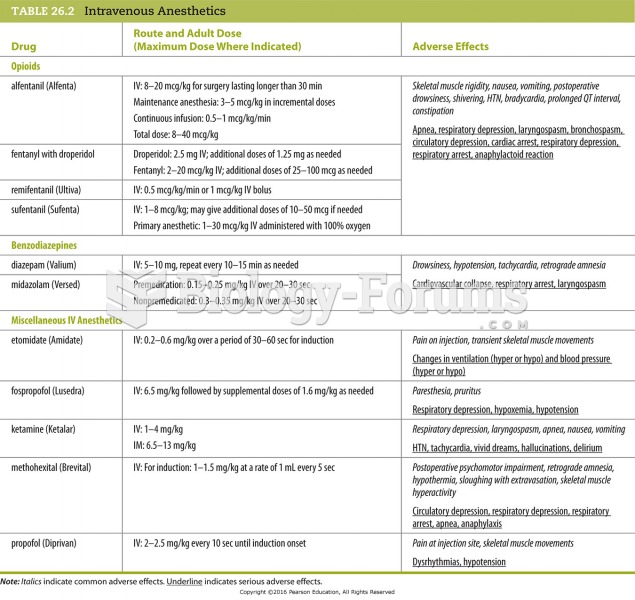|
|
|
Vital signs (blood pressure, temperature, pulse rate, respiration rate) should be taken before any drug administration. Patients should be informed not to use tobacco or caffeine at least 30 minutes before their appointment.
All adults should have their cholesterol levels checked once every 5 years. During 2009–2010, 69.4% of Americans age 20 and older reported having their cholesterol checked within the last five years.
Blood in the urine can be a sign of a kidney stone, glomerulonephritis, or other kidney problems.
Atropine, along with scopolamine and hyoscyamine, is found in the Datura stramonium plant, which gives hallucinogenic effects and is also known as locoweed.
Though newer “smart” infusion pumps are increasingly becoming more sophisticated, they cannot prevent all programming and administration errors. Health care professionals that use smart infusion pumps must still practice the rights of medication administration and have other professionals double-check all high-risk infusions.
 New England children like David, Joanna, and Abigail Mason (painted by an unknown artist around 1670
New England children like David, Joanna, and Abigail Mason (painted by an unknown artist around 1670
 After connecting the shutoff tool, start the engine and operate all accessories. Stop the engine ...
After connecting the shutoff tool, start the engine and operate all accessories. Stop the engine ...





